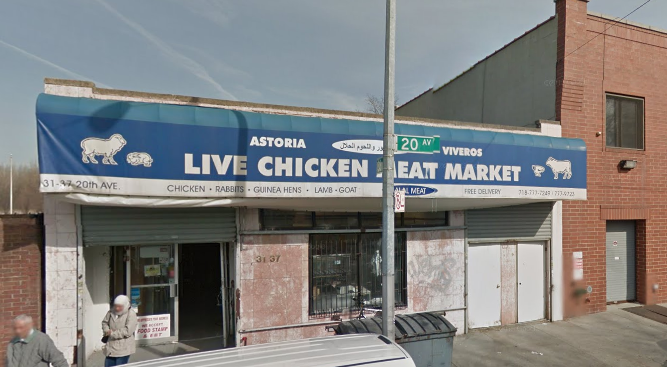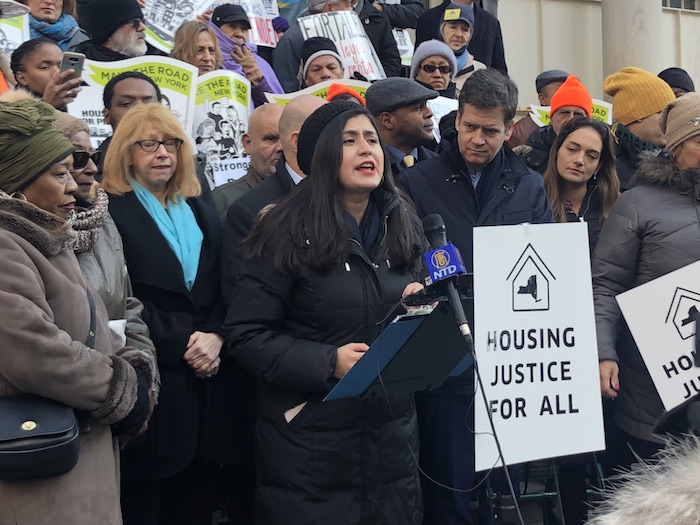Chickens, ducks, quail. All available for the killing (and buying) at live markets in Queens — but maybe not for long.
On Tuesday, State Assemblymember Linda B. Rosenthal (D-Manhattan) and State Senator Luis Sepúlveda (D-Bronx) announced new legislation that would close down live markets in New York State to prevent the spread of zoonotic disease.
COVID-19, the disease caused by the rapidly spreading coronavirus that has brought the world to its knees, is thought to have originated in a live market in Wuhan, China. Rosenthal and Sepúlveda said that they hope closing live markets in New York will prevent another pandemic.
“We don’t need to wait for the next pandemic to spring out of one of our markets to close down these obvious potential vectors for disease,” Rosenthal said.
Live markets are places where animals are slaughtered on site before being sold to customers as food. There are more than 80 live markets in New York City. They are monitored and inspected by the New York State Department of Agriculture and Markets.
The legislation would immediately close down all live markets. It would then convene the Task Force on Slaughterhouse Public Health and Safety and Animal Welfare — a task force made up of epidemiology, veterinary science, and animal welfare experts — to decide whether the markets can reopen safely, and if so, how.

Assemblymember Brian Barnwell (D-Maspeth, Woodside, Middle Village, and portions of Astoria, Sunnyside, Elmhurst, Rego Park and Long Island City), whose district has live markets, said that he hasn’t seen the bill so he couldn’t comment on it but that he wasn’t against the idea of closing live markets.
“If there is obviously evidence that live meat markets cause this kind of crisis, then I don’t see why they shouldn’t be closed down,” he said.
Zoonotic diseases originate in animals and spread to humans through bodily fluids and surfaces. Approximately three out of four new diseases originate in animals according to the CDC. SARS and H1N1, both zoonotic diseases that either caused or nearly caused pandemics, are thought to have originated in live markets.
Aysha Akhtar, neurologist, public health specialist, and Chief Executive Office of the Center for Contemporary Sciences said that wet markets are an ideal place for new zoonotic diseases to emerge.
“By mingling different species together in cruel, unsanitary ways and in close contact with humans, we are just asking for even more trouble than what we face today,” she said.
Animal rights advocacy groups like Brooklyn-Queens Animal Save, an organization that according to their Facebook page “bears witness to the animals awaiting to be slaughtered for food at live markets in Brooklyn and Queens,” came out in support of the legislation.
“As long as we continue to have markets selling live animals, killing them for food under these unsanitary conditions, people will continue to die alone in hospitals, businesses will be forced to close, while medical professionals risk their lives saving others,” said Katerina Trabazo of Brooklyn-Queens Animal Save.








